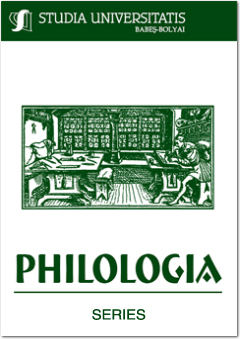LANGUAGE AS A REPRESENTATION OF THE ABSURD IN S. BECKETT’S WAITING FOR GODOT
LANGUAGE AS A REPRESENTATION OF THE ABSURD IN S. BECKETT’S WAITING FOR GODOT
Author(s): Annamaria StanSubject(s): Language and Literature Studies
Published by: Studia Universitatis Babes-Bolyai
Keywords: absurd; Beckett; Godot; language; void.
Summary/Abstract: Beckett’s language acts as a symbol of the absurd in his literary works. Waiting for Godot is no exception. The purpose of the article is to analyse the language used in the play as a representation of the void and of the inner self. Beckett’s language tries to express the inexpressible in a linguistic game that connects the boundaries between meaning and meaninglessness. It is in the latter that the author finds the perfect tool to achieve the purpose of his work: that is to transmit to the audience the literary theme of the void. The research work deals with the author’s philosophical ideas about nothingness and his concern with the absurd in one of his most representative works.
Journal: Studia Universitatis Babes-Bolyai - Philologia
- Issue Year: 54/2009
- Issue No: 3
- Page Range: 273-278
- Page Count: 6
- Language: English

